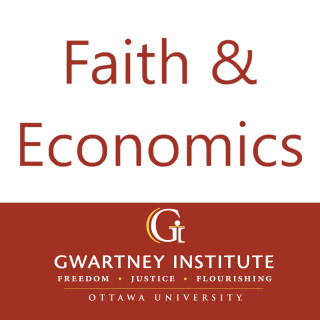

The Gwartney team this week talks about the minimum wage argument. This discussion is led by our special guest Dr. Victor Claar. Dr. Victor V. Claar is associate professor of economics at Florida Gulf Coast University in Fort Myers, where he holds the BB&T Distinguished Professorship in Free Enterprise. He studied business and math as an undergraduate at Houghton College in upstate New York, and earned his masters and doctoral degrees in economics at West Virginia University.
Professor Claar is an affiliate scholar of the Acton Institute, as well as a member of the Foundation for Economic Education's Faculty Network. He is a Fulbright Scholar, having spent a year teaching economics to graduate students in the former-Soviet republic of Armenia.
Professor Claar has a long, impressive record of publications, including his influential book, Economics in Christian Perspective: Theory, Policy and Life Choices, now in its tenth printing and recently translated into Chinese. His forthcoming book with coauthor Greg Forster, The Keynesian Revolution and the Rise of Economic Materialism: We're All Dead, is under contract to be published in early 2019 by Palgrave Macmillan.
The link to his minimum wage article is here: https://www.thepublicdiscourse.com/2021/03/74720/